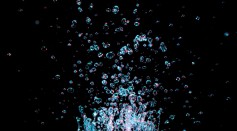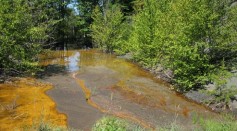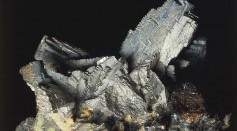chemistry

Simulation for Improved Modern MRIs Conducted to Create Better and Safer Analysis of Patient's Anatomy

University of Illinois Used Zeolite Pores to Develop Water Molecules and Its Fluidity as Catalyst for Faster Chemical Reactions

Industrial Chemical Processes Made More Efficient Through Catalytic Surface; Decarbonization Easier and Faster

Calcium Imide: Catalyst To Extract Hydrogen Fuel From Ammonia; Step Towards Efficient Green Energy Harvest

Rare-Earth Element Terbium Used in Cellphones May Now Be Easily Detected With Newly Developed Protein Equipped Sensor

Water Properties Observed for the First Time; Findings Present Never-Before-Seen Quantum Tug of Hydrogen Bonds

Renewable Energy: How Green Hydrogen Will Bridge The Gap for Energy Transition

Ion Dynamics in Phosphate Glass During Hydration; Silicophosphate Potential Solution to Bone and Muscle Disorders
Copper Atoms Kept Closer to Combat Bacteria, New Approach Shown in Study
Elastic Ice Microfibers: Scientists Believe They Can Help Detect Air Pollution
Caltech: Rare Type of Stellar Grain Discovered, Scientists Explain More About Water’s Origin on Earth

Gold Mysteriously Concentrates Around Arsenic, and Scientists Finally Understand Why

78 Sunscreens Contaminated With Cancer-Causing Chemical, Testing Lab Urges FDA for Recall
Rare Radioactive Plutonium Isotope Dating Back Millions of Years Discovered 5,000ft Below Pacific Ocean
Most Popular

How Technology Is Changing the Real Estate Industry?

How a Plant-Based Diet Can Protect Against Breast Cancer: Insights from Nutrition Research

Study Reveals High Turnover in Scientific Research Careers: What This Means for Future Scientists

Nikolay Karpenko Biography, Photo, Career, Accomplishments






